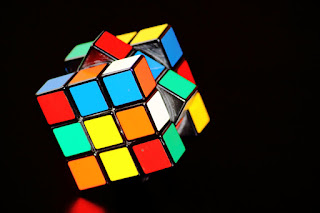I recently had a dear friend say to me “I'm continually amazed that anyone is able to communicate at all. Every word is a translation because of the specific and unique meaning we have for them.” I completely agree. Someone’s use of any given word can confuse or even insult depending on their personal meaning.
Not even a dictionary is any help with this issue. English is a continuously shifting and changing thing. It is usage altered every day; a moving target.
A word I find extremely frustrating in this regard is “intelligence” and its synonyms. This word has so many widespread incorrect meanings and usage that it may one day actually change to mean them. Then we’ll have to come up with another word.
A lot of people with ADHD are told they are stupid. This is for all sorts of reasons, one being a commonly held misconception about intelligence: that intellectual capacity is either synonymous with or at least always accompanied by an excellent memory. If someone has a poor memory, so says common wisdom, they cannot possibly be smart.
This is clearly not the case. Having a good memory does not mean the person has the ability to utilize the information retained and having poor recall does not preclude it.
It is related to the erroneous idea that a large vocabulary is an indicator of intelligence. I've heard it said that a person needs complex language in order to express complex ideas. That assumes that if someone is intelligent they are able to articulate it. How often has someone had an idea they simply lacked the language to express? Even with a large and complex vocabulary. That does not mean the intelligence is less, it simply means others cannot experience it.
Another frustrating phenomenon of mistaken intelligence was personified in an ad for theSkimm.com, a newsletter that sends the latest world headlines to your email every morning. Their tagline “TheSkimm makes it easier to be smarter.” while pithy, is almost entirely incorrect. Being informed or aware of current events does not make you smart. I'd even argue the opposite. If someone had a gift for a specific topic or area, are they best served spreading their energy and time across a wide area? I don't think they are.
When theSkimm.com invited me to sign up for their newsletter, the decline button was labeled “No thanks, I prefer to be miserable in the morning.” I guess they've never heard of a news holiday and don't know that if I subscribed to them that would in fact be what would make me miserable in the morning.
All of this does not even begin to touch on the different kinds of intelligence. Social, emotional, mechanical, academic, and others that simply do not have labels yet.
I hope we can begin to look for, celebrate, and utilize the intellect in our fellow humans. We as a species need all the smarts we can get.



